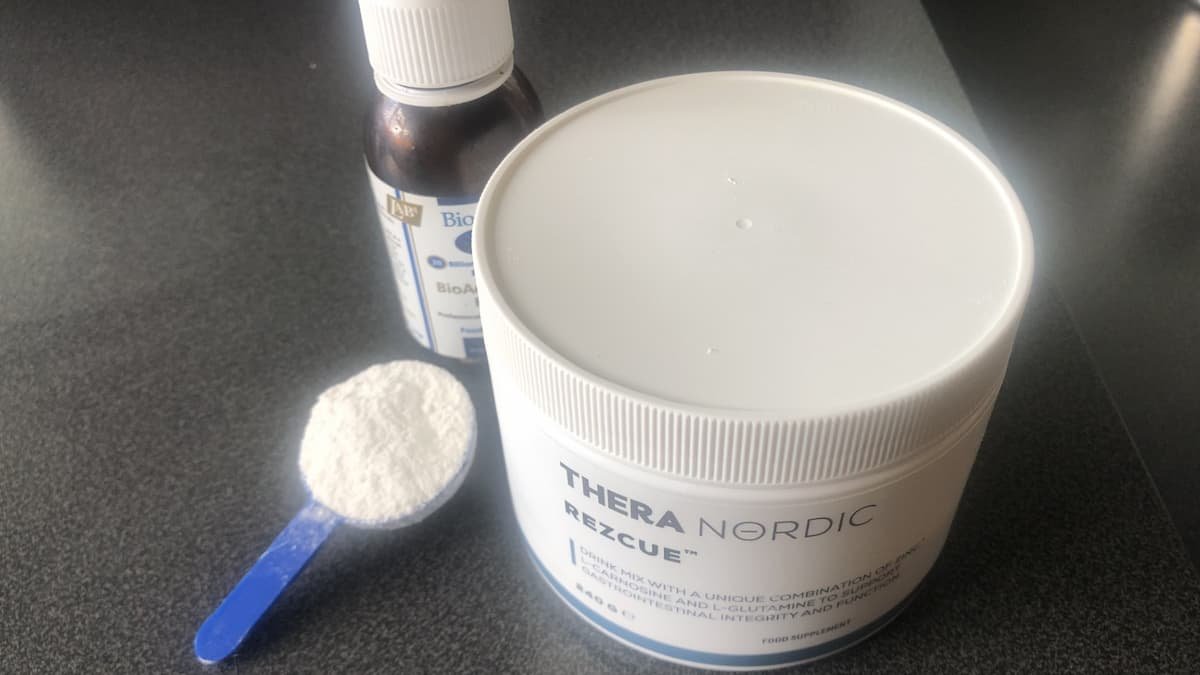There are more microorganisms in our body than there are cells.
Probiotics are part of these microorganisms.
This collection of microorganisms is called our microbiome and contains, bacteria, fungi, and viruses. It is also known as our gut flora.
Some of these bacteria aren’t great and can cause anything from the common cold to anthrax, however many are on our side and helpful to the body. These are known as probiotics.
They help the body perform various tasks, including digesting food, manufacturing vital nutrients, improving our metabolism, and fighting off bad bacteria.
When Our Microbiome is Out of Balance
Our microbiome is very important to us and when it gets damaged things don’t function as they should.
Digestive issues can occur causing constipation, diarrhea, gas, bloating, and stomach cramps, often leading to the GP diagnosis of Irritable Bowel Syndrome (IBS).
We can also struggle to lose weight and frequently catch colds.

The immune system can start attacking our organs, known as an autoimmune condition.
Skin health can be affected causing blotchy skin.
The brain is even affected possibly leading to anxiety and depression.
Each one of us has a unique combination of different microorganisms, but this is not fixed and can change.
Factors such as the food we eat, and the chemicals and stress we are exposed to can affect our gut flora.
Even poor sleep can impact our gut health and poor gut health can then cause sub-optimal sleep, so a vicious circle occurs!
Dysbiosis
Already mentioned some microbes are more useful than others. Some are quite opportunistic and will move into a space when a helpful species is reduced.
In this case, when bad microorganisms gain the upper hand, health is impaired.
When our gut flora is imbalanced it is called dysbiosis and this is when supplementation with can be important.
The benefits off taking a good probiotic are vast, ranging from better digestion, clearer skin, better weight control, a stronger immune system to a better mental state.
Mainstream medicine has been slightly slow to embrace the benefits of probiotic bacteria.
The main reason is that scientific studies on the human microbiome and probiotics are still in their infancy and therefore the role of different species and strains is still trying to be understood.
Although various scientific studies have been completed and benefits have been found, especially for digestive issues like Irritable Bowel Syndrome.
This meta-analysis shows the benefits of probiotics in the treatment of IBS.
Probiotics: Vital for Gut Healing
One point should be made clear. Probiotics aren’t a magic bullet to cure all health problems.
Sometimes a more comprehensive approach might be needed, like the 4 R’s Program, which has been very successful with many IBS sufferers.
Read my blog on this gut health program by clicking the link.
When the gut is in poor health, often a combination of dietary, lifestyle, and a supplementation program is needed.
However, there is little question that probiotics play a vital role in gut healing and therefore in our overall health.

One Size Doesn’t Fit All!
To optimise your gut health by taking probitics means you shouldn’t consider a ‘one size fits all’ approach.
Often specific strains are needed depending on the indvidual person.
As a Nutrition Consultant one of my specialisms is helping improve clients gut health.
I can offer Comprehensive Stool Analysis Biochemical Testing which find the levels of bacteria and yeasts in the gut and specific strains.
This then means a more precise program can be used to improve the person’s gut health, as the test will specifically show which strains of bacteria are high or low.
The test will also show if any parasites or yeast are present and levels of inflammation affecting gut barrier function.
If parasites or yeast are present, several anti-microbial agents can be used to kill the specific organisims and gut healing supplements and dietary changes can be implemented to help heal the gut lining.
The tests I use are from Genova Diagnostics or Invivo Healthcare
If you’d like more information about the above and how I can help improve your gut health please feel free to look at my Nutritional Consultancy pages.








